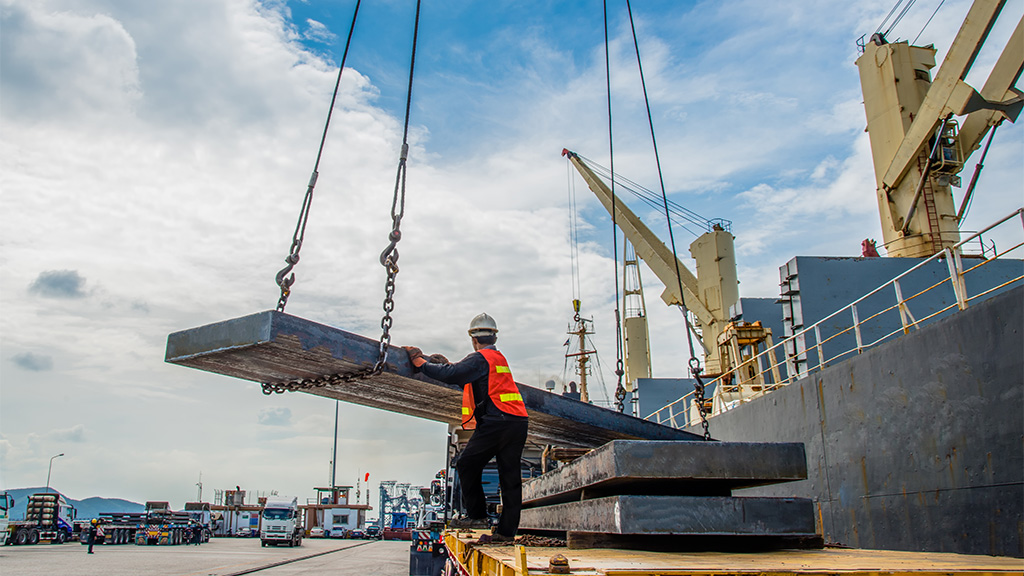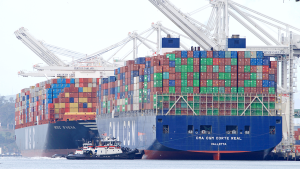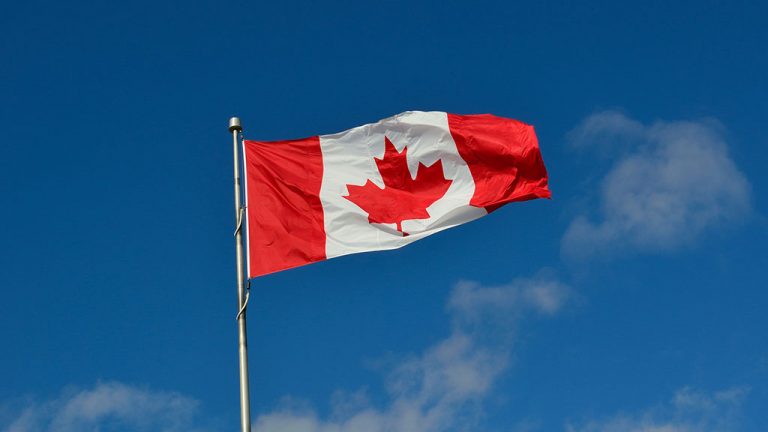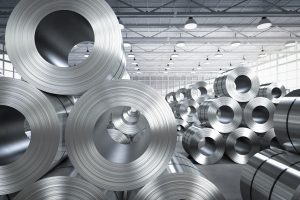Steel producers are calling on the federal government and the Canada Border Services Agency (CBSA) to use all available tools to crack down on unfair trade and stop cheap offshore steel from being illegally dumped in Canada.
Authorities maintain the steel industry in Canada is at a critical juncture as it is making investments to produce green products, yet hundreds of thousands of tonnes of offshore imports are flooding the domestic market.
“We are not yet winning the battle,” says Catherine Cobden, president and CEO of the Canadian Steel Producers Association (CSPA). “We still have a tremendous amount of offshore imports in our marketplace.
“The Canadian industry is making over $3 billion of investments in decarbonization at a time when unfairly traded imports are growing and offshore imports are growing which is quite concerning. They’re making those investments and yet our market is being undercut by unfair trade. That is highly problematic.”
Over the past few years, there has been a significant influx of unfairly traded steel entering Canada at low prices, despite the goods being under anti-dumping orders, which is undercutting domestic producers.
Offshore steel imports into Canada have grown from 19 per cent of the market in 2014 to 41 per cent in 2022. Last year alone, hundreds of thousands of tonnes of steel came from countries with active anti-dumping cases against them.
“Because of that, obviously, there is an ongoing volatility in the pricing we have in the marketplace,” notes Cobden.
“As the offshore imports grow, the propensity for unfair trade grows. We’ve done a lot of work to identify a lot of the gaps in the trade-remedy system and our point is we can’t ever stop. We’ve got to keep adjusting to make sure we’re keeping pace with the actions and activities of those importers.”
Specifically, the CSPA wants the government and the CBSA to impose retroactive duty assessments on steel illegally imported into Canada as well as investigate particular market situations involving specific countries.
Cobden says enforcement as well as retroactive duties should be automatic in instances where steel is found to be illegally imported into Canada.
“Some of the tools are not automatic and we believe they should be,” she says. “If we found that there was a problem with the normal value, it should be automatically adjusted. We don’t need to take months.”
The CSPA maintains increased monitoring of steel imports at the border is also critical to ensuring a level playing field for Canadian companies and is pressing for a system that will require that the country where the steel was melted and poured be identified.
“We need to be tough or ensure the need for transparency of the supply chain and we need melt and pour import monitoring. We’re looking for it in Canada. It would be very helpful to ensure that transparency is clear.”
The CSPA is commending the CBSA for its recent decision to issue $6.1 million in retroactive duties under the Special Imports Measures Act on line pipe imported from Korea, as it sends a strong signal to the market that serious consequences will be faced by importers that engage in unfair trade practices.
The CSPA is also applauding the CBSA for its re-investigation of the normal values of corrosion-resistant steel-sheet and export prices that originated from Turkey and Vietnam. It notes the move is another in a series of recent actions that demonstrates Canada’s strong commitment to enforcing and evolving its trade defences and protecting the domestic steel market from the impact of unfairly traded steel.
Cobden says it was the first time the government used the approach and, along with the retroactive duties imposed on Korean steel, demonstrate Canada continues to crack down on unfair trade.
The CSPA notes the important tool was developed by the Government of Canada to enable the CBSA to address a wider array of circumstances that impact trade flows.
“We think it’s very appropriate that they have used it in this case. We also think it’s very important that they continue to use it when the circumstances call for that.”
Cobden says Canadian steel is among the greenest in the world and the industry is working to cut its emissions by a further 45 per cent by 2030, so it is crucial to maintain the country’s rigorous trade defences.
With steel companies investing heavily to reduce carbon emissions, and following a path to decarbonization, it is important to ensure practices are in place to ensure Canadian steel companies can remain competitive, she notes.
“I think it’s important to never lose sight of the fact that unfair traders are going to find ways to cheat the system and as a rule-of-law country we must be ever-vigilant in keeping our trade-remedy tools sharpened and on form.
“It’s not a reflection of anything wrong with our trade-remedy system. Honestly, we have a very significant trade-remedy system. The only point is we have to keep evolving it.”











Recent Comments
comments for this post are closed